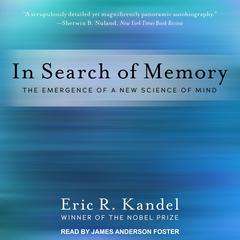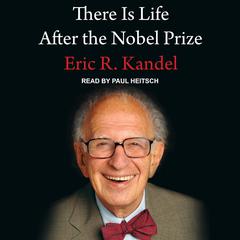 Play Audiobook Sample
Play Audiobook Sample
Reductionism in Art and Brain Science: Bridging the Two Cultures Audiobook
 Play Audiobook Sample
Play Audiobook Sample
Quick Stats About this Audiobook
Total Audiobook Chapters:
Longest Chapter Length:
Shortest Chapter Length:
Average Chapter Length:
Audiobooks by this Author:
Publisher Description
Are art and science separated by an unbridgeable divide? Can they find common ground? In this book, neuroscientist Eric R. Kandel, whose remarkable scientific career and deep interest in art give him a unique perspective, demonstrates how science can inform the way we experience a work of art and seek to understand its meaning. Kandel illustrates how reductionism—the distillation of larger scientific or aesthetic concepts into smaller, more tractable components—has been used by scientists and artists alike to pursue their respective truths. He draws on his Nobel Prize–winning work revealing the neurobiological underpinnings of learning and memory in sea slugs to shed light on the complex workings of the mental processes of higher animals.
In Reductionism in Art and Brain Science, Kandel shows how this radically reductionist approach, applied to the most complex puzzle of our time—the brain—has been employed by modern artists who distill their subjective world into color, form, and light. Kandel demonstrates through bottom-up sensory and top-down cognitive functions how science can explore the complexities of human perception and help us to perceive, appreciate, and understand great works of art.
Download and start listening now!
Reductionism in Art and Brain Science Listener Reviews
Be the first to write a review about this audiobook!
About Eric R. Kandel
Eric R. Kandel is the University Professor and Fred Kavli Professor at Columbia University and a Senior Investigator at the Howard Hughes Medical Institute. The recipient of the 2000 Nobel Prize in Physiology or Medicine for his studies of learning and memory, he is the author of In Search of Memory, a memoir that won a Los Angeles Times Book Prize; The Age of Insight: The Quest to Understand the Unconscious in Art, Mind, and Brain, from Vienna 1900 to the Present, which won the Bruno Kreisky Award in Literature, Austria’s highest literary award; and Reductionism in Art and Science: Bridging the Two Cultures, a book about the New York School of abstract art. He is also the coauthor of Principles of Neural Science, the standard textbook in the field.
About James Anderson Foster
James Anderson Foster, an Earphones Award–winning narrator, has narrated audiobooks for a variety of publishers, across nearly all genres, both fiction and nonfiction. In 2015, he was a finalist in three categories for the Society of Voice Arts and Sciences Voice Arts Awards—mystery, science fiction, and fantasy.
















